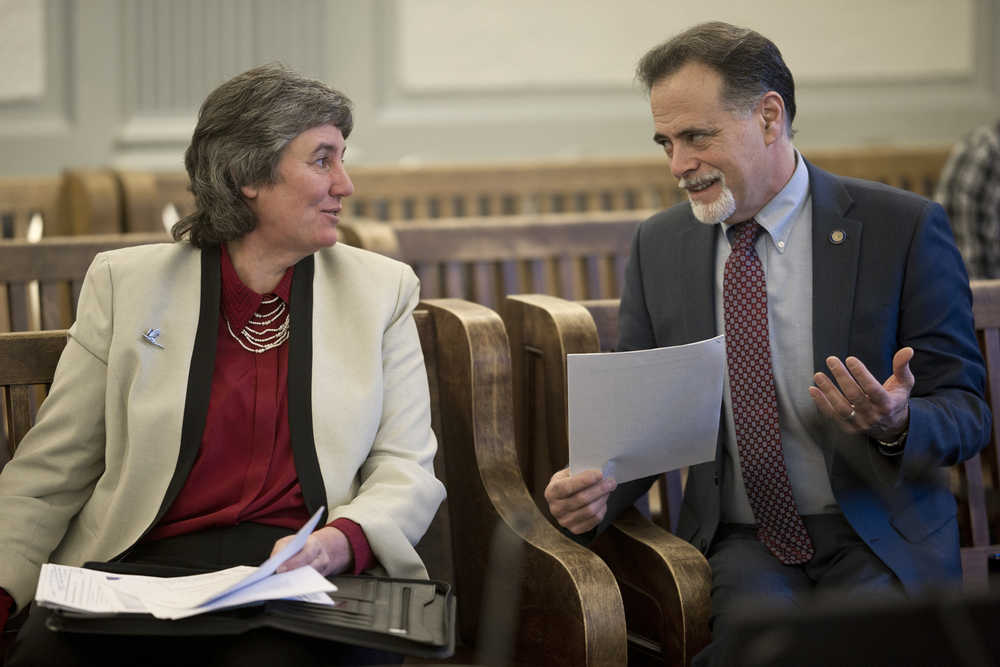Juneau has lost more state jobs over the past two years than any other place in Alaska, the director of the state office of management and budget told lawmakers Monday.
Pat Pitney, as part of a presentation to the Senate Finance Committee, provided figures showing Juneau lost 198 state jobs between Dec. 31, 2014 and Nov. 15, 2015. Anchorage, which has approximately twice the number of state jobs as Juneau, lost 193 positions.
“It’s more than Anchorage, but not considerably more,” Pitney said after the conclusion of the meeting.
The jobs data was released as Pitney was interrogated by members of the Senate curious whether the state is simply cutting people while leaving their positions vacant. Sen. Anna MacKinnon, R-Anchorage and co-chairwoman of the finance committee, said she doesn’t feel it’s a true budget cut unless a position is eliminated, not just left vacant.
Sen. Pete Kelly, R-Fairbanks and co-chairman of the committee, said he agrees, then compared the situation to a human being’s fat cells. When a person loses weight, he explained, the fat cells empty out but don’t entirely go away. If a person eats too much, even after losing weight, those fat cells can fill back up.
“We’re trying to get rid of these fat cells,” he said.
“Is the state losing weight, or are we just performing liposuction?” Sen. Mike Dunleavy, R-Wasilla, asked.
Pitney replied that the state lost about 600 employees between 2014 and 2015. One-third of those cuts were in Juneau.
Figures provided by Pitney from Department of Labor seasonally adjusted data show that the state had 24,800 employees in October 2015. That’s the lowest figure since October 2007, when the state employed 24,700 people. According to DOL figures, the state peaked at 27,200 employees in January 2011.
That didn’t appear to satisfy lawmakers, who wanted to know if the state was eliminating people, or positions and people.
“What I’m looking for is how the position counts affect, long-term, the number of employees,” MacKinnon said.
With the state’s annual deficit now approaching $4 billion per year, she said she wants to make sure that cuts today won’t simply be filled tomorrow.
“We’re looking at going forward, and it doesn’t look like this administration is cutting the budget,” she told Pitney after the meeting’s conclusion. “From our position, we’re trying to see how we sustain a budget that is $4 billion short.”
During the hearing, MacKinnon asked Pitney to provide a list of Position Control Numbers, the IDs by which the state designates each available position, even if it is unfilled.
“We’re going to go into your budget,” MacKinnon told Pitney after the hearing, referring to the governor’s proposed budget, “and if it’s not gone, we’re going to delete it.”

